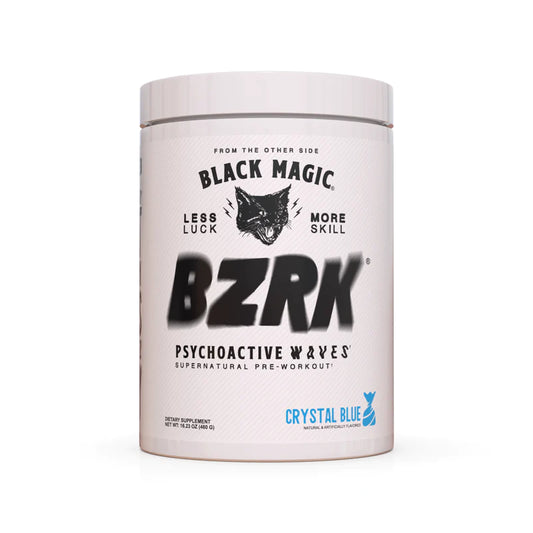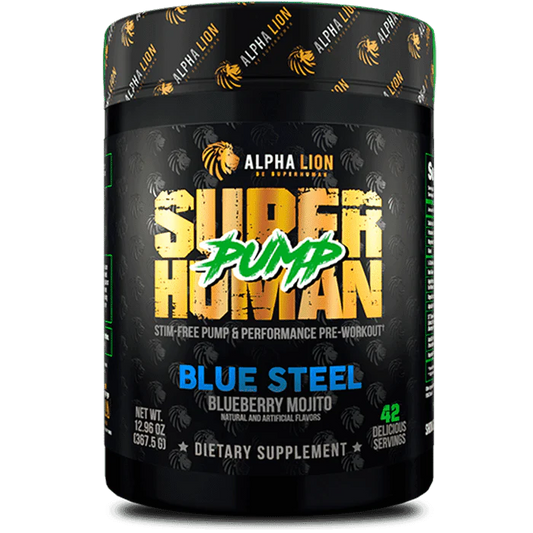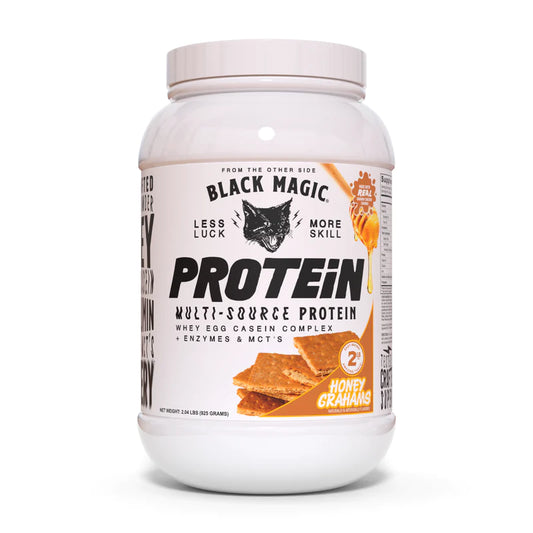Branched-chain amino acids (BCAAs) are essential for muscle growth and recovery in bodybuilders. The three BCAAs - leucine, isoleucine, and valine - make up a substantial portion of muscle protein and play critical roles in protein synthesis. For bodybuilders looking to maximize muscle growth, optimizing BCAA intake should be a top priority. This article will examine why BCAAs are so important for bodybuilding and how to effectively utilize them in your diet and supplementation regimen.
What are BCAAs and Why are They Important?
BCAAs are a special group of amino acids that have a branched molecular structure. Unlike most other amino acids, BCAAs are primarily metabolized in the muscle rather than the liver. This makes them uniquely effective at stimulating muscle protein synthesis - the process of building new muscle tissue.
The three BCAAs perform several key functions related to muscle growth:
- Activate mTOR - The BCAA leucine is a powerful activator of a key protein called mTOR that signals muscle cells to increase protein synthesis. This ramps up the molecular machinery responsible for muscle building.
- Decrease protein breakdown - BCAAs help decrease the breakdown of muscle proteins that occurs after intense exercise. This contributes to creating an overall positive muscle protein balance.
- Participate in muscle protein synthesis - BCAAs, along with other essential amino acids, are directly incorporated into new muscle tissue as it is being built. They serve as raw materials that make up the proteins that give muscles their structure and function.
- Promote recovery - By reducing exercise-induced muscle damage and accelerating repair of damaged muscle fibers, BCAAs help bodybuilders recover faster after workouts. This allows them to workout more frequently for greater gains.
With all of these critical roles in muscle growth and recovery, it’s clear that consuming adequate amounts of BCAAs should be a foundational nutrition strategy for all bodybuilders.
BCAAs Trigger Muscle Growth Through mTOR Activation
As mentioned previously, the branched-chain amino acid leucine is particularly important for muscle growth because it directly activates mTOR - a key protein that signals the synthesis of new muscle proteins. When leucine levels are high enough after a workout or meal, it binds to and activates mTOR which phosphorylates downstream targets involved in muscle protein synthesis.
This ramps up the molecular machinery of protein synthesis, leading to expansion of muscle cell size and muscle hypertrophy over time. Activating mTOR in this fashion has been shown to increase the rate of muscle protein synthesis for up to two hours after exercise or amino acid intake.
Making sure leucine levels reach the threshold for mTOR activation is therefore a primary goal when designing diets and supplementation protocols to maximize the hypertrophic response. Since leucine makes up a large percentage of BCAA content in common protein sources, increasing total BCAA intake effectively enhances opportunities for mTOR activation.
The other two BCAAs, isoleucine and valine, are not as potent as leucine with regards to mTOR signaling but they do play supporting roles. For example, isoleucine appears capable of increasing protein synthesis in muscle cells independently of leucine. Additionally, isoleucine and valine help maintain a positive nitrogen balance and decrease catabolism of lean muscle.
Optimizing BCAA Intake Around Workouts
To stimulate maximal muscle protein synthesis, research indicates BCAAs are best consumed around workouts. Specifically, consuming a fast-absorbing form of BCAAs shortly before and/or after resistance training is an effective strategy.
Pre-workout BCAA intake primes muscle cells for growth by providing raw materials for building new proteins. Post-workout BCAA intake further boosts this process and helps counter exercise-induced protein breakdown. Shooting for 10-20 grams of BCAAs around workouts is an effective general guideline.
Look for BCAA supplements that provide leucine, isoleucine, and valine in a 2:1:1 ratio. Straight leucine alone can also be effective, but the combination with isoleucine and valine may provide increased benefits. Fast-absorbing forms like powders, tablets, and liquids are ideal for use around workouts. Timed intake of BCAAs around training sessions gives bodybuilders the best muscle building bang for their buck.
BCAAs Benefit Bodybuilders on a Calorie Deficit
Cutting calories to get leaner is often part of a bodybuilder’s training regimen. But being in a calorie deficit can have downsides, including increased muscle breakdown. Fortunately, research confirms BCAA supplementation while cutting calories can help mitigate these adverse effects and preserve lean muscle mass.
When calorie intake is lowered, levels of muscle-damaging hormones like cortisol tend to rise. Simultaneously, levels of anabolic hormones like testosterone and insulin that normally support muscle growth decrease. This double-edged sword exacerbates catabolism of muscle proteins.
Supplementing with BCAAs has been shown to counteract these hormonal changes in a calorie deficit, decreasing muscle breakdown. BCAAs also boost fat burning during calorie restriction, helping to reveal those hard-earned abs and obliques. For bodybuilders prepping for a competition or photo shoot, making sure BCAA intake is adequate while cutting is imperative.
BCAA Dosage Recommendations
So how much total BCAA intake is optimal for bodybuilders? Research studying direct BCAA supplementation suggests ingesting around 0.03-0.12 grams per kg of body weight per day. This equates to roughly 3-12 grams per day for a 200 lb bodybuilder.
Higher doses in the 20-30 gram range may be appropriate for maximizing muscle growth during a bulk cycle when aiming to pack on as much mass as possible. Doses on the lower end of the spectrum are likely sufficient during less intensive training periods or while cutting.
The easiest way to determine an effective BCAA dosage is by tracking total daily protein intake. BCAAs comprise about 14% of the amino acids in animal proteins and 25% of amino acids from plant proteins. Consume 1.6-2.2 grams of protein per kg of body weight daily as a bodybuilder, and BCAA intake should fall into an optimal range.
Getting in 25-30 grams of high-quality protein every 3 hours is also an effective strategy. The BCAA leucine content from each of these feedings will activate mTOR for muscle growth. Time one or more of these feedings pre and/or post-workout to maximize results.
Best BCAA Food Sources
While direct BCAA supplementation is popular, whole food sources of protein also provide substantial amounts of BCAAs. Here are some of the top foods to include in your meal plan to ensure adequate BCAA intake for optimal muscle growth:
- Whey protein - Approximately 26% BCAAs and particularly high in leucine. Powder supplements provide a convenient way to increase intake.
- Chicken breast - Contains about 15% BCAAs. An 8 oz portion has around 3 grams.
- Beef - Up to 20% of the amino acid content in beef comes from BCAAs. Fattier cuts are higher.
- Fish - Fish like salmon provide over 20% BCAAs. Get up to 5 grams in an 8 oz fillet.
- Eggs - Whole eggs offer about 15% BCAAs. The whites are approximately 25% BCAAs.
- Dairy - High fat dairy foods are good sources, providing 10-15% BCAAs. Includes milk, cheese and yogurt.
- Soy - Tofu, edamame and soy protein contain 15-25% BCAAs. Soy protein powder is an alternative to whey.
- Legumes - Beans, lentils, and peas offer lower BCAA content (around 5-8%) but can add to total intake.
- Nuts and seeds - Most have approximately 15-20% BCAAs. Walnuts, almonds, and pumpkin seeds are great options.
Following a high protein diet with a mix of these foods will ensure an optimal supply of BCAAs to support muscle growth. Focus on getting complete protein sources that contain all the essential amino acids.
Maximizing Muscle Growth With Proper BCAA Intake
Providing the body with adequate BCAAs is a nutritional foundation upon which muscle growth happens. BCAAs stimulate protein synthesis, decrease protein breakdown, and play key roles as muscle tissue is being built.
To utilize BCAAs most effectively:
- Consume a high protein diet with 0.25-0.30 grams per pound of body weight spread across 4-6 meals.
- Supplement with 10-20 grams of BCAAs pre and/or post-workout.
- Maintain steady intake even when cutting calories to preserve muscle.
- Get BCAAs from both whole food sources and supplements if desired.
Proper intake of BCAAs along with resistance training is a powerful combination that can help pack on lean muscle mass. Make these essential amino acids a cornerstone of your bodybuilding nutrition plan.
Conclusion
BCAAs are fundamental to muscle growth and repair in bodybuilders. By stimulating protein synthesis, reducing protein breakdown, and supplying raw materials for building muscle tissue, they play pivotal roles in supporting gains in muscle size and strength.
Leucine is particularly important for activating mTOR, the key signaling protein that initiates muscle protein synthesis. Strategies like consuming BCAAs around workouts, while cutting, and from high protein foods maximize their beneficial effects.
Integrating ample BCAA intake into nutrition, workout, and supplementation plans can give bodybuilders the edge they need to achieve their ultimate physique goals. Just remember - no BCAAs, no gainz!




